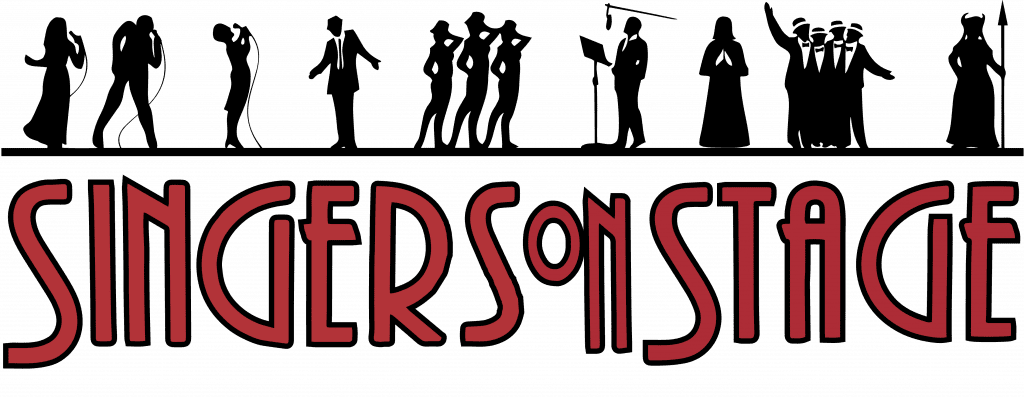BUILDING GOOD HABITS
If you are studying voice with a teacher, most of what you accomplish will be not because you set great goals for the new year, but because you were determined, disciplined, and had a strong desire. The three D’s.
Obstacles can interfere with success, such as not getting enough sleep, eating food and drinking drinks that harm the body and the voice, and fear of failure.
You are the only one with the power to guarantee the habit will take hold. Science has shown what actions work, and here are a few:
Why?
What is your “why?” If you do not know why or what your intention is, you will be more likely to get discouraged or give up. Those who have a strong “why” will be more likely to succeed. So, if it doesn’t come to mind quickly, do some self-searching and figure it out. Visualize it. Write it down.
Daily Routines – Practice
A routine is not a habit. It’s a planned and scheduled action. A habit is an action we do not even need to think about. That takes repetition.
Your body responds to repetition-style exercises. Your voice and all its parts, larynx, pharynx, muscles, tendons, cartilage, diaphragm and supporting muscles throughout the body all work together to produce sound.
When you routinely practice, and the longer you practice, you will be able to “lift heavier weights” sooner. However, going through the motions of the routine does not help. You can work a weight press machine by press too quickly up and down. That approach does not have the impact of a slow, sustained press. It’s the same with the voice.
Establish a time of day and place that becomes a daily routine then schedule it on your calendar. In an article published by Harvard Business Review, it suggests to put a “must do” behavior along side a “reward oriented” behavior.
So if you meet your daily practice goal, do something else that’s fun or that you love to do right after your practice. For example, listen to one new singer a week that you aren’t familiar with, in the style of music we’re learning. Or watch a new Broadway musical (TV or film versions) or a concert or a TV vocal competition. Or listen to your favorite playlist and singers you love or read a good book. The list goes on. Reward yourself for your hard work.
Create a practice plan, and work it.
Here is one example:
(Make sure you have recorded your lesson so that you can use it for practice.)
- 5 minutes – body warm up
- 5 minutes – breathing exercises
- 5 minutes – vocalise
- 45 minutes – song research, create lyric sheet, print sheet music, practice and memorize songs, review songs
If you are beginning your vocal journey, start with 30 minutes and gradually increase your practice time. If your goal is to be a professional singer, a 3-hour daily practice is the minimum (and maximum) because the voice is fragile. If you are working at the extremes of the vocal spectrum (rock and opera), or currently performing, cutting back on daily practice or working it every other day will help preserve vocal health.
I ask my beginning students for a minimum of 5 hours’ practice weekly.
Identify blockers – fears.
What is keeping you from building the habit and reaching your goal?
- Is it fear? Of what? Do you have someone to talk to about it that can help?
- Do you have support? (Family, friends)
- Is it that you aren’t organized, can’t find your music, don’t have a recorded practice or recording device?
- Is it that you need to talk to your teacher about something you don’t understand or that you don’t like the song you’re working on, or something about the training that you would like to change? TALK TO YOUR TEACHER! A good teacher will establish good communication. If there’s ever a question or a change needed, it needs to be taken care of immediately.
One of the following will happen if you do not establish the practice habit:
1. You will not be prepared for your lessons.
2. You will not see progress.
3. You will get bored, discouraged, or lose interest.
4. You will decide to quit.
Plan for bumps along the way.
The road to building a habit, and in this case, to becoming a great singer, is filled with the unexpected. Nothing worth achieving is easy. It takes hard work and perseverance.
When you “hit the wall,” look at it as an opportunity to move to the next step. You will find that when we face opposition and respond with opportunity or when we face adversity and we counter with advantage, life changes for the better.
What’s your attitude? It will make all the difference in your life. Do you quit easily? Have you taken lessons in the past, perhaps an instrument, and then when it gets tough, you aren’t among the tough that gets going?
You can change it! Be kind to yourself. You CAN do this. There is no such word as “CAN’T” in my voice studio. Get started today. — Cherilyn Bacon
